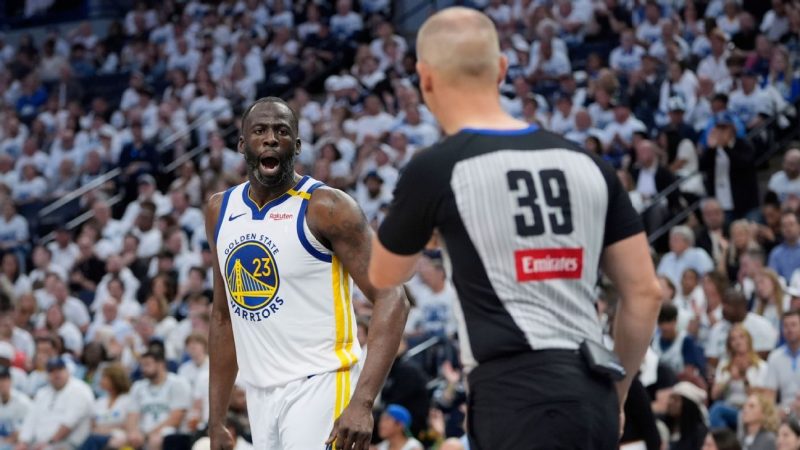
Draymond Green, the Golden State Warriors star, had a rough night in Game 2 against the Minnesota Timberwolves. He received his fifth technical foul of the playoffs, putting him dangerously close to an automatic suspension. But Green’s post-game comments went beyond the on-court incident, revealing a deeper frustration with what he perceives as a media narrative. He vehemently rejected the portrayal of him as an ‘angry Black man,’ emphasizing his success, education, family, and accomplishments in basketball. This outburst comes after a game filled with tension, including an incident where a fan was ejected for directing a racial slur towards him.
Green’s technical foul stemmed from a second-quarter altercation with Naz Reid. While a foul was called on Reid, Green also received a technical after review for his reaction to the play. He didn’t hold back in expressing his belief that there’s a deliberate effort to paint him in a negative light. He stated clearly, “Looked like the angry Black man. I’m not an angry Black man. I am a very successful, educated Black man with a great family, and I am great at basketball and great at what I do.” The intensity of his statement underscores the weight of this perceived misrepresentation.
His teammate, Jimmy Butler, acknowledged that Green’s reputation might sometimes work against him with referees, but expressed confidence that Green would manage to stay composed and avoid a suspension. Butler highlighted Green’s importance to the team, particularly with Stephen Curry sidelined due to a hamstring injury. Warriors coach Steve Kerr also addressed the situation, acknowledging Green’s competitive fire but emphasizing the need for him to stay composed to avoid further penalties.
This incident isn’t isolated. Green previously addressed his composure and emotional regulation following a flagrant foul in the first round against the Houston Rockets. He described self-reflection and seeking support from his wife, his college coach, and close friends. He also mentioned the methods he’s developed to manage his emotions after undergoing therapy and counseling following a previous suspension. This suggests a conscious effort to improve his emotional control on and off the court.
The incident highlights the pressure and scrutiny faced by high-profile athletes, particularly those who are Black. Green’s comments raise important questions about media portrayals and the complexities of navigating both intense competition and public perception. His journey towards improved self-regulation emphasizes the ongoing work involved in managing emotions within the demanding world of professional sports. As the playoffs continue, it will be interesting to see how Green manages his emotions and the pressures of the game moving forward.









